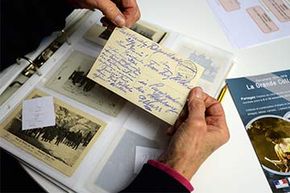Humans have always been invested in their ancestry. From the never-ending lists of biblical begats to feudal scholars painstakingly forging grand lineages for nobility, who we come from (and how cool it makes us) was always part of our identity. Fortunately for us, the 21st century is the best time in history to start researching your ancestors. Census data is available; the Internet makes tons of information accessible; and with people living longer, you have a much better chance of finding an oldster who remembers things about your great-great grandparents.
There are also plenty of other reasons to do genealogical research. Looking for a mystery? Want to fill out the spaces on your family tree? Do you want to connect with a cultural heritage? Or would you like to explore a historical period from a more personal perspective?
Advertisement
From a practical standpoint, knowing your family's history can give you and your doctor a leg up in determining what ailments to look out for, too. Was your family prone to a specific type of cancer or degenerative disease? What about marasmus? Podagra? Scrumpox? History is serious business, but it is also a treasure trove of oddly named medical conditions.
Whatever your reasons, this is a great time to get started drawing your family tree. New archival material is constantly being digitized, and online resources for mapping family connections and organizing documents and data make it easier than ever to research your ancestry. Read on for more information on how to get started.
Advertisement


